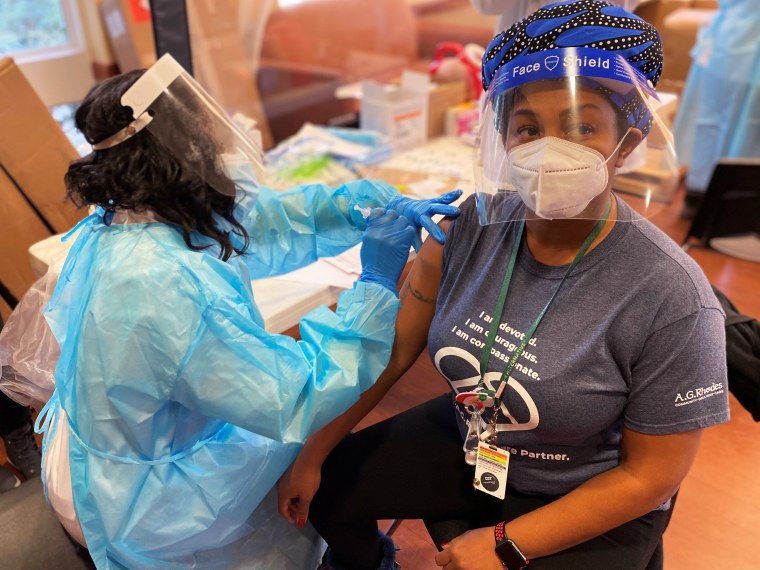With Covid-19 vaccines now approved for use by the FDA, there’s a lot of talk — and confusion — about how this massive rollout will reach people across the country.
While it’s hopeful news, the timeline for most people receiving vaccines is weeks or months away. That’s because the process of vaccinating millions of people takes time, and the vaccine supply needs to catch up with the demand.
This happens by increasing production of approved vaccines by Pfizer and Moderna, and continuing to develop other vaccine candidates. The good news is that the FDA is expecting to review two additional vaccines, produced by Johnson and Johnson and AstraZeneca in the coming weeks.
And even now, with more limited availability, it’s up to individual states (and sometimes counties) to decide who is eligible for the vaccine. Some processes are smoother than others. But one thing for sure is that there is a great deal of uncertainty about the process, which leads to stress, and sometimes desperation. Sadly, scammers are already showing up with fake offers for “shortcuts” and are preying on people’s fears.
While it’s hard to wait, it’s also essential to recognize there’s no immediate access to a vaccine through an “alternate” route. When it sounds too good to be true, it probably is.
Remember, whatever the pitch you’re given, never answer personal questions, or provide information like your full Social Security number or banking information. Scammers are often looking for personal information for identity, insurance and financial theft.
According to the Department of Health and Human Services, here are some scams to beware of:
Scam #1: Being asked to pay out of pocket to receive the vaccine.
The Covid-19 vaccine is free, although there can be a very small fee attached to administer the vaccine.
Scam #2: Being asked to pay to get your name on a list for a vaccine appointment, or to get early access.
There is no special list to “cut the line” to get early access. You cannot pay for immediate access to a vaccine.
Scam #3: Being asked to respond immediately for a vaccine through advertisements on social media, emails, telephone calls, or on-line access.
Avoid all solicitations through ads or personal calls for a reservation for a vaccine, whether they request money or not. Sometimes personal information is requested, which you should never provide.
Scam #4: Being called by someone saying they are from the “government” or someone from your “health plan” will be calling you about getting you on a vaccine list.
No one from the government will call you about getting on a vaccine appointment list. And your own health plan will notify you in a personal way, and have your key information.
Scam #5: Receiving an offer to buy a vaccine, and have it shipped to you directly.
There are no “secret” sources of a vaccine that can be purchased. If anything is shipped, it will not be an authentic vaccine.
If you think you’ve been a victim of a vaccine scam, report it to the Federal Trade Commission (FTC) at ReportFraud.ftc.gov.
Madelyn Fernstrom, Ph.D. is NBC News’ health editor. Follow her on Twitter @drfernstrom.
